MDSUN offers a cosmetically elegant experience without harsh ingredients, perfumes, or chemical scents. Our clinically proven formulations are hypoallergenic, non-comedogenic, and free of synthetic preservatives, hydroquinone, fragrances, and PABA.
Don't wanna be here? Send us removal request.
Text
5 Habits That’ll Ruin Your Skin Faster Than You Can Blink
Skincare Tips from MDSUN Skin Care®
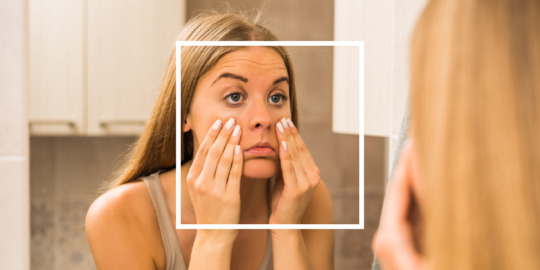
Somewhere in the back of your mind, you know that you have to take good care of your skin. You make an effort to choose your skincare products wisely. You religiously remember to wash the makeup off of your face before you go to bed. Well, most of the time, anyway. You even apply sunscreen when you’re at the beach.
What if we told you there were things that you do on a regular basis that have a negative impact on your skin? Things you may not even imagine?
Your seemingly benign habits may be ruining your skin. That beautiful complexion that you strive for is still going to be out of your reach if you partake in any of these bad habits.
Changing your habits may be the inspiration your skin needs!
5. Not Getting Enough Sleep

While those nights out with the girls are just what the therapist ordered, they don’t do your skin any good. Not getting enough sleep can result in dull skin and clogged pores. If you strip that time away you could be left with a number of skin problems, including premature aging, eczema, and psoriasis.
Nighttime is when your skin does most of its work: naturally repairing damage and regenerating. Not getting enough sleep can decrease collagen production. Missing out on your zzz’ can raise cortisol levels, your body’s stress hormone, which leads to inflammation, a contributing factor to many skin problems. “Persistently high cortisol levels can interfere with how well our bodies heal and can promote acne breakouts,” warns Joshua Zeichner, M.D, the Director of Clinical Research at Mount Sinai Hospital in New York City.
Getting the recommended eight hours of sleep a night will not only help you look refreshed but will replenish and rehydrate your skin.
4. Going Heavy On the Sugar
Studies have found that diets heavy on sugar can speed up the aging process. Sugars give bacteria fuel to feed on while weakening your immune system. It can cause spikes in insulin release, triggering inflammation. Consuming too much-refined sugar can cause damage to the collagen in your skin, resulting in signs of accelerated aging like wrinkles and a loss of elasticity.
Stay away from sweet treats, as well as refined carbs like you find in bread and pasta. Opt for plenty of vegetables, fruits, and whole grains. These foods are not only healthier, but they’re full of antioxidants that can help to repair your skin, keeping it younger, healthier, and clear.
3. Smoking

Besides endangering your overall health, smoking is downright harmful to your skin. It causes premature aging and wrinkling, adding a decade to your skin and giving your face a leathery look. It can also lead to much more serious trouble. “Smoking cigarettes increases your risk of squamous cell skin cancer, a dangerous skin cancer that can metastasize and spread if not caught early,” warns dermatologist Rachel Nazarian, M.D.
Nicotine reduces blood flow to your skin so it doesn’t get enough oxygen and nutrients. The chemicals in tobacco damage the collagen and elastin proteins that give your skin structure. It also decreases the ability of the skin to heal. According to dermatologist Yoon-Soo Cindy Bae, M.D., with the Laser and Skin Surgery Center of New York, “A smoker’s skin is thin, dull, more wrinkled, and less able to heal.” Smokefree.gov says that cigarettes can also cause the skin on your face to become dry, dull, and gray. It can’t even be remedied with the best moisturizer and good skin routine.
Even second-hand smoke can cause the skin to sag and speed up the wrinkle process.
As if you needed another reason to quit. “Quitting smoking may have restorative benefits,” says Pat Folan, RN, Director of the North Shore-LIJ Center for Tobacco Control in Great Neck, New York.
2. Too Much Sun
“Every tan, even a slight darkening, is a sign of skin damage,” explains Dr. Nazarian. “With repeated exposure to UV-radiation, skin cells can mutate, causing deadly skin cancers like melanoma. If that wasn’t bad enough, chronic radiation and tanning also cause signs of skin aging, like wrinkles, sagging and drooping, brown spots, and uneven tone.”
If you want to prevent wrinkles and skin cancer, you should be taking precautions daily, even when it’s cold or cloudy outside. Make sure that your moisturizer contains sunscreen, so you only need to apply one product. “Every day of the year, rain or shine, harmful UV rays come through windows in your office, home, or car,” says celebrity esthetician Renee Rouleau.
Look for a minimum of SPF 30, and apply it every two hours if you’re outside. Don’t skimp, either. A full teaspoon is about right for your face, hairline, around your nose, and chin.
1. Over-Exfoliating

While exfoliating can slough away loose patches and increase circulation, the rough treatment can actually disrupt the barrier that balances moisture in the skin. Too much can strip it of its necessary oils it needs to maintain your natural glow, causing irritation. You could experience redness, inflammation, irritation, and breakouts.
Rouleau advises using a good scrub or exfoliating acid sparingly. “It can be used seven days on and seven days off. During the days when it is not being used, nourish the new healthy cells with a great moisturizer for your skin type.” Choose gentle products that won’t cause too much irritation.
2 notes
·
View notes
Text
Why You Should Invest in the Best Skincare Products You Can Afford
Skincare Tips from MDSUN Skin Care®

Bargain shopping is fun. The thrill of the challenge, the elusive find, the sense of victory when you win a steal. That’s ok for antiquing and accessorizing. Not so much for skincare.
There’s definitely something to be said for quality, especially when it comes to what goes into the products designed to nourish and care for the largest organ of your body: your skin.
Cheaply produced and packaged products with cute titles might have gotten you through your teens, but your mature self deserves more respect.
Just like the bargain basement toilet paper your husband came home with last month, there are some serious holes in a skincare routine that hasn’t had some thought put into it. That’s not to say that you have to go out there and purposefully auction off your kidney so you can buy the most expensive skincare products on the market just because they’re — well — the most expensive. No. But you should be paying attention to quality and arming yourself with the best skin care products that your budget can afford.
What Does Best Mean in Skincare?
We’re talking about the best for you. The best for your skin. The best for your goals.
Know Your Skin

Typically, what looks pretty on the storeroom shelf or has the funniest commercial isn’t necessarily always what is best for your skin.
It doesn’t matter what fabulous new serum you come home with tomorrow, if it’s not chosen to suit your particular skin’s needs, it’s not good for much of anything. Take some time to do your homework and get to know your skin before going shopping for shiny packaging.
Look at your face through a magnifying mirror and analyze it. What is your skin type? Are you seeing broken capillaries? Pale or sallow skin? Is your skin the same all over, or do you have certain problem spots? “Think of your skin as having different ecosystems,” says Kate Somerville, an L.A.-based aesthetician who caters to celebrities such as Katherine Heigl. “Are you dry around the eyes but experience hormonal breakouts on your chin? It’s all about treating these areas with the right products.” It’s worth taking some time to figure out exactly what your skincare needs are. If you’re not quite sure where to begin, invest in a trip to your dermatologist for some guidance.
If you’re using the wrong products for your skin, not only will it not get any better, but chances are, it’ll get worse.
It’s All About the Best Ingredients
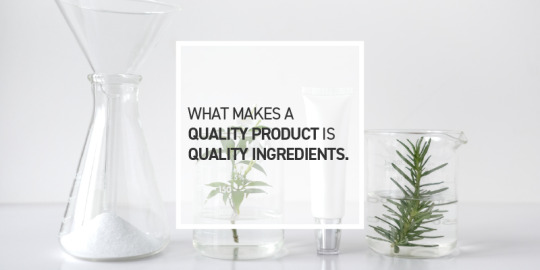
What makes a quality product is quality ingredients. When you’re seeking the best skincare products for you, you’re looking for things that are going to be right for your skin type and address the problems you need to fix. There is nothing more important to the overall effectiveness of a product than the ingredients that go into it. And let’s face it, typically you get what you pay for in this department. Just look at the difference in cost of products that contain high levels of filler ingredients versus high levels of active ingredients; lab-created compounds versus sustainably sourced extracts.
And the right ingredients can do the right job. Be careful of what you read on labels. You are shopping for effect, not promise. Beware of label claims like “improves the appearance of” followed with a problem (acne, dark circles, fine lines). Instead, “look for important words such as ‘exfoliating,’ ‘hydrating’ or ‘mattifying’ and then match the product to your skin’s needs,” says Fiona Stiles, a celebrity makeup artist for Mark whose clients include Lucy Hale and Elizabeth Banks.
You’re seeking products that have a high percentage of active ingredients involved. Many formulations can be up to 80% water. That’s not really going to do much for your skin, and you’re paying for a tuneful of the stuff. In some drugstore or even natural brands, “water can masquerade as Aloe Vera juice or herbal infusions,” warns Julia Teren of Thesis Beauty.
Taking Time to Find the Best

What is best for you and your skin isn’t necessarily immediately discernible. Sometimes it takes a little while to allow products to work their magic before you know they’re the one. A zit-on-the-run shouldn’t take 10 days to go away. If you used a spot treatment chances are it resolved on its own. Anti-acne treatments are designed to work pretty quickly. With anti-aging products, it’ll take a bit longer before you start to see an improvement in the dark spots and wrinkles. “You need a minimum of two weeks — but closer to a month — to see results,” says Dr. Schultz. A moisturizer should produce some change immediately, but an exfoliating product will likely take a week or two.
Quality Skincare on a Budget
Not every purchase has to break the bank. There are plenty of affordable-for-most-budget brands out there that fit the quality guidelines we outlined above, offering effective products. They focus on using good ingredients at wallet-friendly prices.
Find the combination of products that work best for you and stick with it.
0 notes
Text
What Are Serums and How Do They Work?
Skincare Tips from MDSUN Skin Care®

Every day we’re bombarded with a huge variety of skincare choices. There are so many different recommendations on what you should and shouldn’t use and for a multitude of varying reasons.
You’ve been told you should incorporate a serum into the middle layers of your facial care routine, but you’re not quite sure how that works.
Then there’s the sticker shock. Serums tend to seem pricey for such small quantities. Just how do they get away with charging so much for what seems like so little?
We’re going to demystify the aura around facial serums and take a look at exactly what they do for you.
What Is a Face Serum?

Let us start by defining what a serum is not. A serum is moisturizing but is not a moisturizer. It’s oily, but it’s not an oil. It’s watery but isn’t an essence.
Hmmm. So then what is a serum?
Serums are thin, liquid-based products that are much lighter than creamy moisturizers. They are something you apply to your face after cleansing but before moisturizing. They deliver a potent layer of ingredients directly into your skin. They are lightweight, nutrient-packed, and are a key ally in battling for healthy, beautiful, glowing skin.
You could very well consider them a supplement shot for your skin because they are packed full of vitamins and antioxidants to protect you from the ravages of free radicals, which contribute to the premature aging process. They’ve got such a high concentration of antioxidants, anti-inflammatories, and hydrators, making them perfect for targeting specific concerns like wrinkles, dullness, acne, or hydration.
They contain powerful moisturizing ingredients to help skin retain moisture, but they don’t create a barrier on top of the skin like moisturizers do to help retain all those good ingredients.
When Should I Apply a Face Serum?

A serum works best when it’s allowed to sink deep into the skin, so it should be applied before you add your moisturizer and after you cleanse. If your skin care regimen includes a toner after cleansing, smooth on your serum between the toner and moisturizer. All you need is a pea-sized amount for your entire face.
How Does A Serum Work?
Ni’Kita Wilson, a cosmetic chemist and Vice President of Research and Innovation at Englewood Lab describes why:
“The beauty of a serum is that most of the fluid is eliminated, so what you’re left with is a high concentration of active ingredients.” Serums contain the most potent dose of anti-aging ingredients — antioxidants, peptides, and skin brighteners such as kojic acid — you can find in nonprescription products. “They’re the true workhorses of any product line,” Wilson says.
They’re very efficient, so just a few concentrated drops of the product will do. Serums are made up of very small molecules, so the skin absorbs them quickly and deeply. They have a lipid-soluble base, so they can dissolve/mix/interact with fat. This allows the active ingredients to penetrate into the skin instead of just lying on the surface. That means highly-concentrated doses of beneficial antioxidants can be delivered directly to the inner layers of skin. “By leaving out many of the heavier ingredients that are found in traditional moisturizers, [face serums] contain a much higher proportional concentration of active ingredients,” says Dr. Carlos A. Charles, Founder and Medical Director of Derma di Colore in Chelsea.
Many serums are formulated for specific purposes to target skin problems at the core. There are so many variations on the market, choosing one may prove to be difficult, but that also means you have plenty of options. Check your ingredients to choose the best serum for concerns like aging, brightening, or sun damage. Keep your skin problems in mind when you select your serum.
Serums May Not Be For Everyone

Serums are helpful for most skin types, people with certain conditions need to be careful. They are not necessarily for everyone. Because of the lighter liquid or gel-like texture, a serum may be a poor match for those suffering from chronic skin conditions like rosacea, psoriasis, or eczema. These problems weaken the skin barrier, so a serum may cause irritation by penetrating too quickly. If you suffer from one of those problems, you may want to consult your dermatologist before trying a serum.
Is a Serum Worth the Cost?
Serums tend to be a bit pricier than most of your other skincare products, but there’s a really good reason. Keep in mind that they are full of super-concentrated beneficial ingredients and are really potent. Remember how they blend nicely, so a little bit goes a long way. Pound for pound they’re more expensive, but they are definitely giving you more bang for your buck!
1 note
·
View note
Text
7 Best Sources of Skin Friendly Antioxidants
Skincare Tips from MDSUN Skin Care®

When considering your skincare routine, you may not have given much thought to sources of antioxidants. You should. Taking care of your skin involves more than twice-daily cleansing and moisturizing. In fact, what you put into your body has a huge impact on not only your skin but the rest of your bodily systems, as well.
What Are Free Radicals?
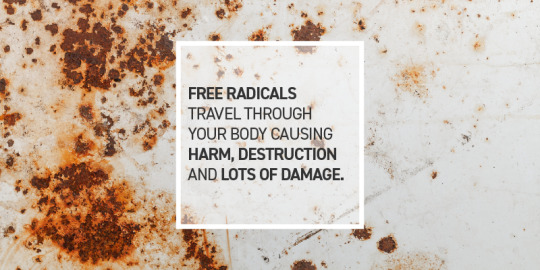
Free radicals travel through your body causing harm, destruction and lots of damage- like tearing apart the collagen matrix that helps your skin maintain its integrity and strength. They are formed as a result of some of the body’s metabolic functions. For example, the liver produces and uses free radicals to detoxify the body, and white blood cells send free radicals in to destroy bacteria, viruses, and damaged cells. It’s once their work is done that they become hoodlums. Free radicals also come from external sources like environmental pollutants and toxins, smoking, and alcohol consumption.
The process of free radical formation is called oxidation. If you’ve watched an apple turn brown or iron rust, you’ve witnessed oxidation in action.
In simple terms, a free radical is an oxygen molecule that is missing an electron. What makes it so “dangerous” is that it goes careening around the body seeking out another atom to bond with. In its search, the free radical goes rudely elbowing its way around, causing damage in its frantic search for a partner.
What do Antioxidants Do?
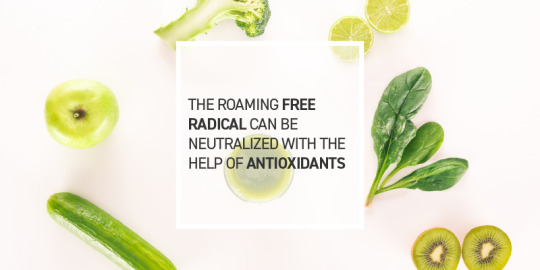
The roaming free radical can be neutralized with the help of antioxidants, and can sometimes be prevented from forming in the first place. Antioxidants help to counteract the deterioration of food products, but they also remove potentially damaging oxidizing agents from a living organism.
Poor nutrition, exposure to toxins, or other factors can lead to lower levels of antioxidants in the body than free radicals, which is when oxidation wreaks havoc in the body. The result is accelerated aging, damaged or mutated cells, broken-down tissue, the activation of harmful genes within our DNA, and an overloaded immune system.
Our lifestyle of processed foods, reliance on medications, and high exposure to chemicals or environmental pollutants seems to tip the balance towards more free radicals than antioxidants. As a result, we need to pay attention to the foods we eat, focusing on those that provide a huge boost in antioxidants.
Here are the top seven providers of powerful antioxidants that especially serve to protect and renew your skin.
1. Green Tea
The potent catechin polyphenols in green tea reduce the development of some signs of aging, clearing cell damage and repairing wrinkles, blemishes, or other impurities. One cup of the stuff has greater antioxidant effects than a serving of broccoli, spinach, carrots, or strawberries. The taste is slightly bitter, especially if not brewed properly.
Bring a kettle to boil
Let it stand for 5 minutes
Pour over tea bag
Steep for 3 minutes before removing the teabag
Still not a fan of the flavor? Try it iced as a base for your smoothie or green drink, or apply it topically. A study published in the Journal of the American Academy of Dermatology found women whose skin was treated with green tea extract were more protected from the adverse effects of sunlight exposure.
2. Berries
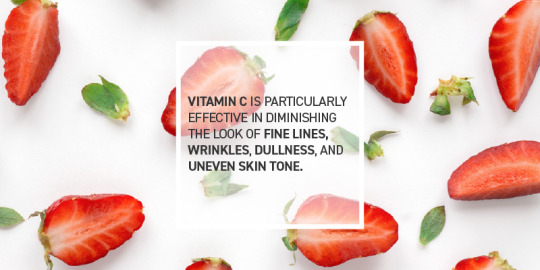
Not only do they taste great, but berries are packed with antioxidants to protect your skin from the sun’s effects. “With ½ cup blueberries, you can just about double the number of antioxidants most Americans get in one day. If you want to slow down the free radical aging process, blueberries are the leader of the pack,” says Ronald Prior, Ph.D., head of the USDA Phytochemical Laboratory at Tufts.
Strawberries are a great source of Vitamin C, which your body doesn’t have the ability to store for later, so you must consume it regularly. Vitamin C is particularly effective in diminishing the look of fine lines, wrinkles, dullness, and uneven skin tone. It’s considered an anti-aging superstar for all skin types.
Cranberries are another that are high in antioxidants, plus they have flavonoids that help to increase the antioxidant activity in the body.
Since berries are one of the highest antioxidant foods available, using them in your refreshing smoothies is a great way to get your daily dose for your skin! The best berries for the job: blueberries, strawberries, cranberries, acai, blackberries, and raspberries.
3. Onions
Onions are rich in quercetin, which protects against wrinkles. Some studies show it may also save the skin from harmful UVB rays. They’re also an excellent source of vitamins A, C, and E, which play a vital role in keeping the skin healthy.
4. Pomegranates
Packed with vitamin C, B5, and antioxidant polyphenols, the odd, tart fruit of pomegranates contains more antioxidants than red wine and green tea. I can keep your skin looking bright and may help to reduce the risk of skin cancer.
5. Whole Grains
Whole grains contain polyphenols and carotenoids that fight the aging process. Brown rice contains polyphenols, powerful compounds that can help to stop the oxidation process. Oats are another great source of antioxidants.
6. Tomatoes
This delicious versatile ingredient happens to be one of nature’s richest sources of lycopene, one of the strongest antioxidants. Be sure to choose only certified organic or spray-free tomatoes, as they are known for being heavily sprayed with pesticides and fungicides — negating the positive effect of the antioxidants!
7. Dark Chocolate
Dark chocolate (not milk chocolate) is high in epicatechin, a type of flavonoid. It’s also rich with polyphenols — even greater than wine and tea. A study reported in the New Scientist showed that eating dark chocolate can increase antioxidant levels (but milk chocolate didn’t). The higher the cacao/cocoa percentage, the more antioxidants!
0 notes
Text
What is ceramide?

Ceramides are a family of waxy lipid molecules found naturally in the skin and are present in all four layers of the epidermis. They’re a type of oily wax that holds skin cells together, creating a protective barrier in the top layer of skin. Although your skin naturally generates its own ceramides, environmental factors and aging may lower this natural production. Boosting your skin’s levels with a topical ceramide cream is beneficial for the repair and maintenance of healthy epidermis. When skin is low in ceramides, it’s prone to redness and dryness.
Phytoceramides are the plant-derived equivalent of ceramides, a lipid that keeps your skin hydrated and plump. Ceramides are found naturally in many foods, especially wheat flour. Sphingolipids, which contain ceramides, are present in large amounts in dairy products, eggs, and soybeans. So you can get ceramides from food and don’t really need to take dietary supplements.
When should I use ceramides?
When your complexion seems to stay irritated no matter what products you are using, the problem could lie within your skin’s barrier. The barrier is the outermost layer of your skin, which comes in contact with all of the elements. It prevents moisture from escaping and toxins and bacteria from entering. Depending on the environment and how aggressive you are with exfoliating treatments, it can be exposed to a lot of external aggressors. However, by incorporating more ceramides into your regimen, you simultaneously moisturize and repair that barrier. By adding ceramides, you can reduce inflammation in the skin which causes redness and irritation.
Ceramide creams are usually hydrating enough to replace your daily moisturizer but aren’t so heavy that they’ll clog the pores of those with oilier skin types. In fact, they actually perform a balancing act and can help reduce oil production. This is especially true if products targeting the issue have caused you to become even oilier. Ceramides can also be used over dry areas on the body, and are available in every form from a toner or essence to a cream or serum. Keep in mind, however, not all ceramide products are created equally.
When you are choosing a product that contains ceramides, be sure to choose a formula that contains a high concentration of ceramides. You can find this information in the top half of the ingredient list. If ceramides are listed at the bottom of the ingredient list, then the product is going to have a very small concentration. If ceramides are listed at the top of the ingredient list, then the product will contain a higher concentration of them.
How ceramides help the under-eye area
There have been a large number of studies of ceramides and how they help the skin. Primarily, these studies focus on how ceramides improve the barrier and water-holding functions of the skin. In a Japanese study on the use of ceramides on the under-eye area it was found that after four weeks, participants’ eyelid skin was much more hydrated than before treatment. Another study showed that topical ceramide creams improved the skin barrier.
MDSUN is a leading brand in skin care treatments and products. Their Med-Eye Complex Cream is infused with over a dozen ceramides. This is a powerful eye cream that is able to visibly promote firmness and increase blood circulation. It will deeply hydrate the eye area to reduce the signs of aging. You can use this cream once during the morning or daytime and once at night to gain a youthful appearance and glow. A sample of this product is available on the MDSUN website.
0 notes
Text
Blow the Critics Away: You Can Change Your Complexion
Skincare Tips from MDSUN Skin Care®

Do you look at yourself in the mirror and cringe? Do you hide away under a deep, wide-brimmed hat (and not because you’re protecting yourself from the sun)? Do you ever get jealous of someone you meet on the street because of their beautiful, flawless complexion?
You should know, you’re not stuck!
You’re stuck in your skin, but not with it.
You Can Make a Difference in Your Complexion

Dermatologist visits aren’t just for pre-cancerous lesion removals. Often, if you’re not happy with the way your skin is looking, there are things you can do to help. Many of them are simple enough that they merely involve some changes to your daily routine. You’ll be surprised at the results you can get by changing some of your habits just a bit!
Healthy Skin Starts With Healthy Insides

If you’re not drinking enough water, it’s no wonder you don’t look your best! Hydrated skin looks fuller, smoother, and healthier because it’s being plumped from within. Drinking water lowers the concentration of oil on your skin, so it could help to decrease acne breakouts.
Get plenty of sleep. Sleeping doesn’t just help your overall health, but it’s good for your skin, too. Your skin heals, repairs, and rejuvenates itself while you sleep. Board-certified dermatologist Debra Jaliman, MD, recommends getting at least seven to eight hours every night. Being sleep-deprived puts stress on the body, causing it to release more adrenaline and cortisol, which can trigger breakouts and other skin problems, says Barbara R. Reed, a clinical professor of dermatology at the University of Colorado, Denver.
Watch what you put in your mouth. Drinking milk can lead to more acne breakouts, possibly due to the natural hormones that are present, according to Leslie Baumann, a dermatologist in Miami Beach, Florida. Other foods that can damage your skin include carbohydrates, white flour, and sugars, as they may lead to acne, sagging, and premature aging. “Processed sugar glycates the collagen, which stiffens and ages it,” says Jaliman.
On the other hand, ingesting foods known to be high in antioxidants and other healthful ingredients can have hugely beneficial effects on your skin. Here are just a few to get you started:
Healthy fats from avocado, fish, nuts, and seeds
Selenium from broccoli, eggs, fish, nuts, shellfish, and tomatoes
Vitamin C from blackcurrants, blueberries, broccoli, guava, kiwi, oranges, papaya, strawberries, and sweet potatoes
Zinc from fish, lean red meat, poultry, nuts, seeds, shellfish, and whole grains
Add green tea to your list of must-dos. “If your complexion is red or blotchy, this tea’s anti-inflammatory properties can be soothing,” says Andrea Cambio, a dermatologist in Cape Coral, Florida. Some experts think that some components of green tea may help to prevent collagen destruction that leads to wrinkles and sun-induced DNA damage in the skin.
Exercise every day. Exercise increases blood flow to your skin and helps to reduce stress.
Avoid environmental toxins and pollution. “Just being around smoke can lead to the release of free radicals that damage skin and hasten to age,” says Diane S. Berson, an assistant clinical professor of dermatology at the Weill Medical College of Cornell University in New York City.
Skin Care For a Healthier Complexion
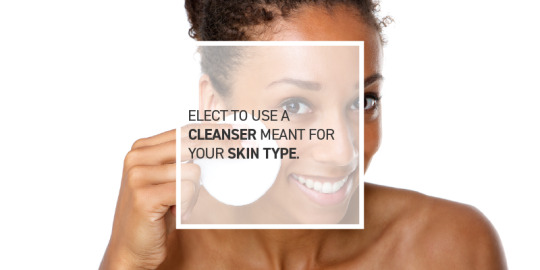
Choose your cleanser wisely. Elect to use a cleanser meant for your skin type. If you are looking to alleviate dryness, “a non-soap cleanser is ideal because it helps replace the moisture barrier in the skin,” advises Lisa Donofrio, an associate clinical professor of dermatology at the Yale University School of Medicine. “Consider it a preventive approach,” adds Berson. “You can use your cleanser to avoid dryness, eczema, and psoriasis rather than just treating these issues when they flare up.” Dr. Jaliman recommends looking for a formula with glycerin and ceramides.
You should be cleansing your face twice daily to get rid of all the dust, dirt, grit, and oil that gets on your skin during the day, and the grime of your skin’s nightly renewal process. Sleeping with your makeup on is definitely a no-no. Use warm water instead of hot and rinse with cool water. Washing too often can actually dry your face out, causing it to produce more oil to compensate, leading to more breakouts.
Follow that up by applying a facial toner and moisturizer. Toners help to re-balance your skin’s pH and tighten pores. Moisturizers help to hydrate your skin. Healthy hydrated skin looks and feels young and supple. Dry skin is unable to perform its natural process of shedding, so dead skin sits on top, leading to clogged pores and blemishes. Even oily-prone skin should be moisturized. Often, oily skin is the body’s cry for more moisture, and skipping out on a moisturizer can make breakouts worse.
Wearing sunscreen is an absolute must, even when you’re indoors! “It’s very important to apply it before you are exposed to the sun and to reapply it every two hours,” says Levine. Because windows obviously let sunlight in, and fluorescent bulbs and electronic devices emit UV rays, it’s crucial to protect your skin when indoors, too. Aside from skin cancers, “many people have more wrinkles and sun damage on the left sides of their faces, too,” notes Donofrio in reference to exposure to UV light in cars. “The UV rays damage your collagen and elastic tissue and cause wrinkles. People who wear sunscreen religiously tend to look much younger than their actual age,” explains Dr. Jaliman.
0 notes
Text
Manly Men Need Skin Care, Too
Skincare Tips from MDSUN Skin Care®

Most men wouldn’t be caught dead standing around discussing their skincare needs and routines. But they have skin, and that skin needs to be cared for, so someone had better be talking about it!
We’re talking basic care here. There’s no need for any major muss or fuss. Trips to the salon aren’t necessary, and neither are chemical peels or weekly masque treatments. (But, hey, if you want to indulge, who are we to judge?)
Basic skincare is important, even for those of manly-man persuasion, and we’re here to talk about it out loud. In addition, men suffer the same skincare woes and troubles as womenfolk. Things like acne, sensitive skin, and razor burn can all be tackled with a little bit of TLC.
Know Your Manly Skin

You may not really care what your skin type is, but trust us- you should. This step doesn’t require you to be a rocket scientist and will make the rest of the process go smoothly and successfully. It just requires a little tiny bit of sleuthing.
If you have:
Normal Skin it stays pretty clear and is not sensitive
Dry Skin is flaky, itchy, or rough
Oily Skin it produces excess oil so it is shiny and greasy
Combination Skin is dry in some areas and oily in others
Sensitive Skin it has a tendency to break out, react to products, or sting or burn
Knowing your skin type will allow you to make good choices when it comes to what products you should or shouldn’t use, or how to help yourself if you run into a bit of skin trouble in the future. If you’ve been having trouble with your skin, try reading the product labels and ingredients. If you have acne-prone skin, you should look for “oil-free” or “non-comedogenic” products because they won’t clog your pores. If your skin is on the sensitive side, use mild “fragrance-free” products to avoid possible irritants.
Basic Skin Care For Men

Your skin needs proper care, but that care doesn’t have to be difficult or horribly time-consuming. Just follow these few simple steps twice a day; morning and before bed.
Cleanse. Skip your same-old average bar soap here. While some bar soaps are good for your skin, many are full of skin-stripping ingredients that can dry you out. Opt for a cleanser designed for your face. Other types of cleansers typically contain chemicals that are too harsh for your face. Rinse with cool water and pat dry with a soft cloth.
Moisturize. If the thought of telling anyone that you “moisturize” seems too girly, just call it “thirst-quenching your skin.” Moisturizing has a bunch of benefits including helping to keep your skin from drying out (even oily skin can get too dry) and will go far towards preventing signs of aging like wrinkles down the line. It also keeps your face looking generally good and touchable.
Treat. If you’re suffering from acne, apply a medicated product. If you are worried about combating signs of aging, anti-aging cream can help to smooth out forehead wrinkles and crow’s feet around your eyes and tighten your skin. An eye cream can also help to reduce bags and puffiness. There’s nothing wrong with wanting to look at the top of your game!
Sunscreen. The sun is the number one offender when it comes to creating wrinkles, age spots, and other age-related damage. On top of that, everyone is prone to the dreaded skin cancer. Don’t let yourself become another one of those statistics. Slathering on a bit of sunscreen with an SPF of at least 30 before you go outdoors only takes a minute. Don’t forget to reapply it every two hours. If you’re going to be sweating or swimming, reapply it immediately afterward!
Shaving Tips For Your Skin

While you may have been shaving for years or decades by now, have you been doing so with your skin’s best interests in mind? Pay attention to your shaving technique. If you’re experiencing razor bumps, razor burns, or ingrown hairs, switch from a multi-blade razor to a single- or double-blade instead. Don’t pull your skin taut while you shave. It may just be that the multi-blade razors are working too well or shaving too closely for your skin.
Wet your skin and hair first to soften it. Apply moisturizing shaving cream and allow it a chance to actually condition the skin before you begin. Shave with the direction of hair growth and rinse after each swipe of the razor. Change your blade after every five to seven shaves to minimize irritation.
Skin Care Extras For Men
You can also pay a little bit of extra attention to these tips to ensure your skin will be sexy, smooth, and healthy for a long time to come.
Drink plenty of water every day and avoid too much caffeine and alcohol
Avoid too much sugar
Watch out for too much time in the sun
Get plenty of sleep every night
Load up on antioxidant-rich fruits and veggies
Keep your stress level low
Stay away from cigarettes
1 note
·
View note
Text
The Debate About the Benefits of Red Wine

You’ve probably heard that a little bit of tippling each day is good for you. That’s probably what you tell yourself every time you sit down with the bottle.
Pour yourself a glass and sit back. We’re going to take a peek at some of the science behind the age-old debate: Is red wine good for you?
Red wine has been enjoyed for centuries. Archeological evidence points to its use thousands of years before the pyramids were built. Not only was it enjoyed for recreational purposes, but it has been touted for its medicinal value. Centuries ago, it was used to treat various health conditions.
In fact, it’s only been in recent years that China has turned to enjoy wine as a beverage instead of limiting it to a role as a healing concoction.
Over the years, the discussion has ensued about whether or not red wine truly provides health benefits, and if so how much. Regardless of whether you’re just out to enjoy the bold flavor or are seeking to add one more weapon to your skincare arsenal, you may want to take note.
Benefits of Red Wine
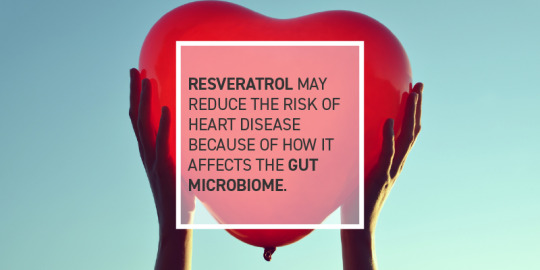
Monks in medieval monasteries were convinced that they lived longer because of their regular (moderate) consumption of wine. Recent science has indicated they could be right.
Research has shown that vino can boost a range of health factors, and several of these are thanks to the presence of the chemical compound resveratrol. It is found in certain plants and red wine and contains a number of benefits including antioxidant properties. It has also been shown to have promising antiviral and anti-inflammatory effects and may protect against some kinds of cancer and prevent some types of vision loss.
Cardiovascular Health: Research done in 2016 suggests that resveratrol may reduce the risk of heart disease because of how it affects the gut microbiome.
It appears to boost levels of beneficial omega-3 fatty acids in plasma and red blood cells. These are believed to protect against heart disease.
Procyanidins (polyphenols) commonly found in red wine help to keep blood vessels healthy. Research finds that people living in areas with higher concentrations of procyanidins in their wine tend to live longer lives.
Type-2 Diabetes: Scientists believe the ethanol in wine plays a key role in metabolizing glucose, modestly decreasing cardiometabolic risk. They also believe that other ingredients in wine play a role, as well.
Brain Health: Researchers at Johns Hopkins University School of Medicine believe that resveratrol may protect the brain from stroke damage. It increases an enzyme that is known to protect nerve cells in the brain. They’re not sure if the alcohol in the wine is necessary, or if the resveratrol itself is responsible.
Vision: Out-of-control blood vessel growth in the eyes called angiogenesis can cause vision loss in patients suffering from diabetic retinopathy and macular degeneration. Early studies suggest that resveratrol could help to prevent this vision loss, and believe it may also prove effective for people with atherosclerosis, and other causes of retinal detachment.
Cancer Prevention: Some studies have reported that resveratrol can reduce the size of bowel tumors.
Breast cancer risks are typically increased with alcohol consumption, but chemicals in the seeds and skins of red grapes reduce estrogen levels and increase testosterone. Since increased estrogen levels are commonly linked with breast cancer, there could be a helpful link here.
Low doses of wine may boost lung function and prevent lung cancer cells from proliferating.
One study showed that men who drank red wine occasionally to moderately (average of four to seven glasses per week) were less likely to develop prostate cancer than those who never drank it.
The downside of Red Wine
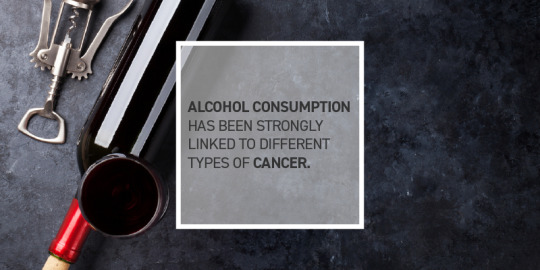
Aside from the obvious side effects of too much alcohol consumption, not everyone agrees that wine has any beneficial effects, or possibly wine may have too many harmful effects that far outweigh the good.
While resveratrol can be found in red wine, that may not be the best way to consume it, since the intake of alcohol may bring its own risks. Alcohol consumption has been strongly linked to different types of cancer, so the preventative benefits may not counteract the negative.
Since most alcohol consumption increases a woman’s estrogen levels, it has been linked with an increased risk of breast cancer. Some scientists still believe that “alcoholic beverages cause breast cancer independent of beverage type.”
Of course, alcohol is technically a toxin that, when broken down, damages your cells. The more you drink, the more damage is done.
According to a naturopathic doctor, Dr. Isabel Sharkar, red wine just so happens to be the worst alcohol you can drink for your skin. She explains that unfiltered fermented grape juice can negatively impact the skin, especially if you suffer rosacea. It’s also likely to cause “flushing, redness, and blotchy skin,” since it is a vasodilator, opening the blood vessels. Dr. Mark Menolascino, the doctor of internal medicine, claims that the sugar in wine can be a leading cause of inflammation.
Are Studies Biased?
In typical studies on alcohol’s effect on any cause, participants are sorted into categories based on how much alcohol they regularly consume. Moderate drinkers (one to three drinks per day) usually come out on top, meaning they’re less likely to die early from health problems like heart disease or cancer and injury.
Extrapolating that research can be tricky, “because moderate drinkers tend to be very socially advantaged,” says Dr. Timothy Naimi, a physician, and epidemiologist at Boston Medical Center. He believes that these drinkers tend to be healthier on average because they’re well-educated and more affluent, not because they’re drinking an average of a bottle of wine a week. Their “alcohol consumption ends up looking good from a health perspective because they’re already healthy, to begin with.”
Some non-drinkers in the studies they looked at weren’t always “dry”. Those in poor health tended to have been heavier drinkers before quitting. Sorting those people further, “when we accounted for these biases, moderate drinkers had no survival advantage,” Naimi says. “It became a wash either way.”
The healthiest group tended to be those that drank an average of one drink every 10 days.
The Laws of Intake

Regardless of your take on wine, the American Heart Association still suggests limiting alcoholic drinks to up to one per day for women, and two for men. One glass of red wine should be about four ounces. Because some people shouldn’t drink at all, a conversation with your doctor would be prudent before embarking on the red wine diet you’ve been planning.
Raw foods are a better source of resveratrol than red wine, so eating them is likely to be more healthful than drinking the wine. You’re probably not getting enough from drinking. “The amount of resveratrol in wine is very small, and you’d have to drink a lot of wine to receive an equivalent dose to what’s been found in animal studies,” says Anne McTiernan, M.D., PhD., cancer prevention researcher at Fred Hutchinson Cancer Research Center. You’d probably be farther ahead if you elected to eat foods that contain resveratrol like grapes, peanuts, and blueberries.
Either way, you view it, when it comes to imbibing, the Centers for Disease Control and Prevention turn a wary eye towards believing too strongly in the purported benefits. Their Dietary Guidelines for Americans suggest people who don’t already drink alcohol shouldn’t start for health reasons.
1 note
·
View note
Link
MDSUN Skin Care
Https://www.mdsun.com/
1 note
·
View note
Link
MDSUN Skin Care
https://www.mdsun.com
1 note
·
View note
Photo

MDSUN ACTIVE CLEANSER REVIEW
Get "MDSUN Products" with Amazon Prime and start saving today with 15% off each on MDSUN Skin Care Products.
https://goo.gl/WoA4wz
#skincare#skincareaddiction#skincare_products#skin_care#facemask#oilyskin#beauty#acne#acne_treatment#acne_scarring_treatment#antiaging#wrinkles#wrinkle#collagen#darkspots#eyebags#blackhead#blackheads#bestblackheadremover#hydrate#hydration#makeup#makeupaddiction#exfoliate#dead_skin_exfoliator#exfoliatingreallyworks#skin
4 notes
·
View notes
Photo


15% off each on MDSUN Skin Care Products
Get “MDSUN Products” with Amazon Prime and start saving today with 15% off each on MDSUN Skin Care Products. https://goo.gl/WoA4wz
1 note
·
View note
Photo


15% off each on MDSUN Skin Care Products
Get “MDSUN Products” with Amazon Prime and start saving today with 15% off each on MDSUN Skin Care Products. https://goo.gl/WoA4wz
#skincare#beauty#beautyblogger#antiaging#moisturizer#acne#collagen#darkspots#makeup#blackheads#hydration#exfoliate#wrinkle#skin#retinol#darkcircle#eyebags#antiwrinkle#antioxidant#irritatedskin#reddenedskin#inflammatory
1 note
·
View note
Text
15% off each on MDSUN Skin Care Products
Get "MDSUN Products" with Amazon Prime and start saving today with 15% off each on MDSUN Skin Care Products. https://goo.gl/WoA4wz
#skincare#beauty#beautyblogger#antiaging#moisturizer#acne#collagen#darkspots#makeup#blackheads#hydration#exfoliate#wrinkle#skin#retinol#darkcircle#eyebags#antiwrinkle#facial#antioxidant#irritatedskin#reddenedskin#inflammatory
0 notes
Link
Get "MDSUN Skin Care Products" with Amazon Prime and start saving today with FREE Two-Day Shipping.
0 notes



